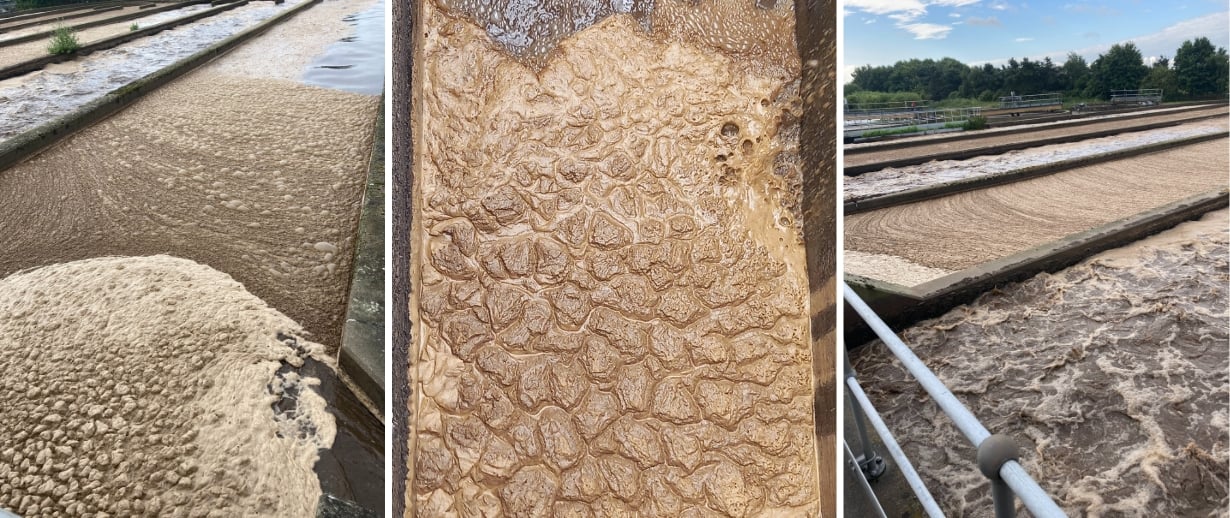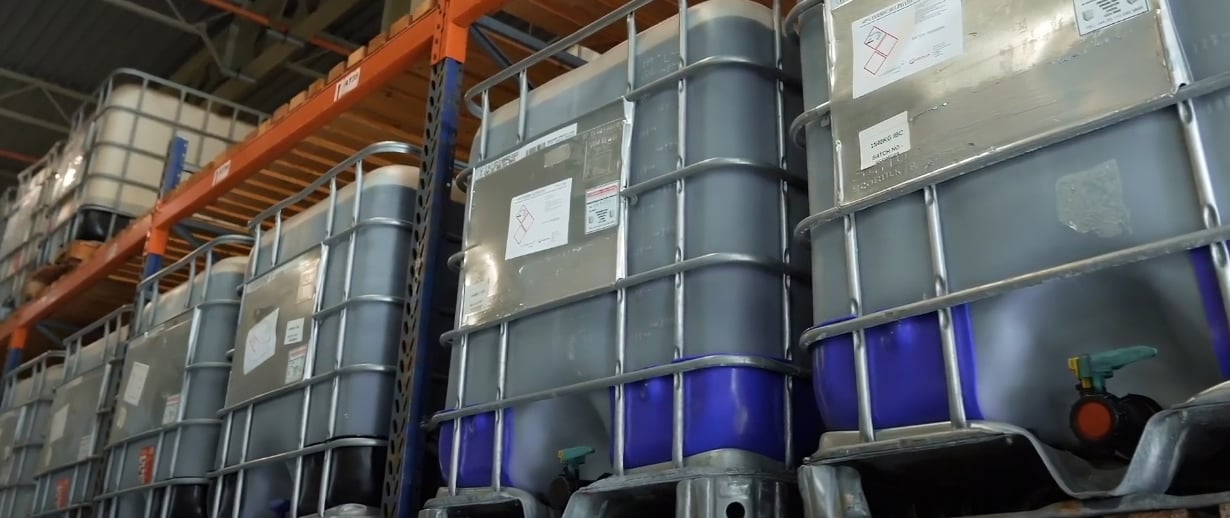Antifoams are used to counteract foaming issues that occur in a multitude of industrial and municipal processes. This blog focuses on the issue of foam in wastewater treatment and how the correct choice of anti-foaming chemicals can help improve efficiency and reduce maintenance issues.
What is foam and why is it a problem?

Foam is often created by the presence of air bubbles in a range of municipal and industrial wastewater treatment processes. It is a problem as it changes the physical properties of the wastewater, which can increase maintenance requirements and shorten the lifespan of system components. For example, it can increase mechanical wear on pumping systems and cause deposits to form in storage and processing tanks, which then must be cleaned regularly.
Foam can also reduce process efficiency if the volume of foam reaches a point where it blocks sieves and filters. Furthermore, there is the risk of bacterial growth in the foam, which may present health risks for employees and the public.
How to choose the right solution?

There are a wide range of anti-foaming and defoamer agents available that can help to negate these issues. These are chemicals that cause the air bubbles to rupture, helping to break down surface foam and prevent it from forming. These chemicals include insoluble oils, silicones, alcohols, stearates and glycols.
It is important to select the correct product for the specific water treatment process and the characteristics of the wastewater, including temperature, as this will influence the type of foam produced. Implementing chemicals that are not suited to the application may mean that they do not perform as expected, wasting money. However, simple changes to the chemical type, dosing location and methodology can have a significant impact on the effectiveness of the solution.
At Veolia Water Technologies UK, we have a wide range of options available for the control of foam. This includes products from our Hydrex 6000 range of chemicals, specially formulated to improve wastewater treatment processes. Our product range includes a variety of different chemical options, including those that are organic-based and more environmentally friendly and those that are suitable for use in food-grade applications.
Working closely with an experienced water treatment specialist such as VWT UK is essential. Our expert team will be able to assess the characteristics of the wastewater and the issues your site faces. We can then make a recommendation on the most suitable chemical solution and provide guidance on the best practice dosing and implementation.
Foam is an issue for wastewater treatment in many sectors from food and beverage production to municipal water treatment. Making the right choice in anti-foam and defoaming chemicals can make a significant difference to the efficiency of the plant as well as the cost of operation.
Read more about our range of antifoams and contact an expert, here.